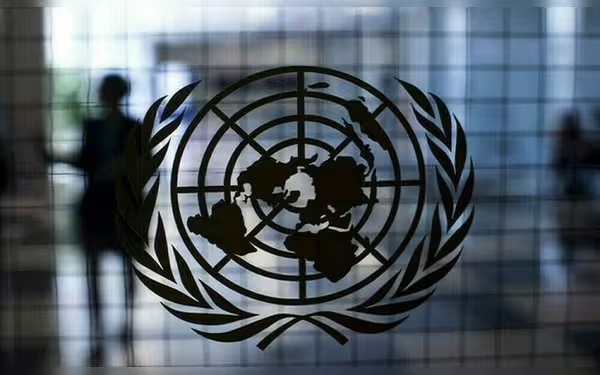Saturday, November 16, 2024 05:31 PM
Urgent Reforms Needed in United Nations for Global Peace
- World leaders' speeches often contradict real-world actions.
- Gaza civilians suffer amid ongoing violence and neglect.
- UN Security Council's veto power hinders accountability.
 Image Credits: brecorder
Image Credits: brecorderWorld leaders' speeches at UNGA highlight the gap between rhetoric and reality, as conflicts persist in Gaza and Ukraine.
Every September, leaders from 197 countries come together in New York for the United Nations General Assembly (UNGA). This event is a grand stage where world leaders deliver speeches that are often polished and prepared by their foreign affairs teams. These speeches are filled with high hopes for a world free from hunger, war, disease, and climate change. Leaders talk about peace, unity, and progress, but there is often a big gap between what they say and what is happening in the world. While they speak of noble ideals, they often live in luxury, far removed from the struggles of the people they represent.
This year’s theme, “Leaving no one behind - Acting together for the advancement of peace, sustainable development, and human dignity for present and future generations,” sounds wonderful. It is something everyone should aspire to. However, the reality for many vulnerable populations, especially in places like Ukraine and Gaza, shows a different story. The people in these areas are suffering greatly, and their peace has been taken away by those who choose war over dialogue.
In Gaza, civilians are facing unimaginable horrors. They are surrounded by violence, with tanks and rockets threatening their lives. Women and children are particularly vulnerable, suffering from not just violence but also hunger and disease. While world leaders gather to discuss peace, the situation on the ground tells a different tale. The speeches made by leaders like US President Joe Biden and Israeli Prime Minister Benjamin Netanyahu may emphasize peace, but the actions that follow often contradict these words.
Netanyahu’s speech at the UNGA was aggressive, focusing more on military action than on diplomacy. This is concerning, especially as violence erupted in Beirut shortly after his address, highlighting the fragile state of peace in the Middle East. The region is on the edge of a new wave of conflict, and the preference for bombs over peaceful solutions is alarming.
It is troubling to note that on the same day Netanyahu spoke, the US approved $7.5 billion in arms for Israel. This decision raises questions about the commitment to peace when military support is prioritized over diplomatic efforts. Israel’s actions seem to be building an empire on the suffering of others rather than fostering peace.
In a world filled with conflicts, peace is often just a word thrown around in speeches. Countries like Ukraine, Gaza, Yemen, and many others are crying out for peace, yet their pleas often go unheard. The UNGA has become a platform for leaders to express their concerns, but the real power lies with the Security Council, where a few countries hold veto power. This power can block any attempts to address conflicts, allowing aggressors to escape accountability.
For instance, Russia, involved in the Ukraine conflict, can veto any resolution that condemns its actions. This creates a situation where those who commit acts of aggression can avoid facing consequences. Similarly, the ongoing violence against Palestinian civilians in Gaza has been met with a lack of meaningful action from the international community, despite widespread calls for a ceasefire.
While the UNGA serves as a platform for discussing global issues, the gap between rhetoric and reality remains vast. The world is filled with conflicts, and the cries for peace are often drowned out by the sounds of war. It is essential for world leaders to move beyond empty promises and take real action to address the suffering of those caught in the crossfire. Only then can we hope to see a world where peace is not just a dream but a reality for everyone.













